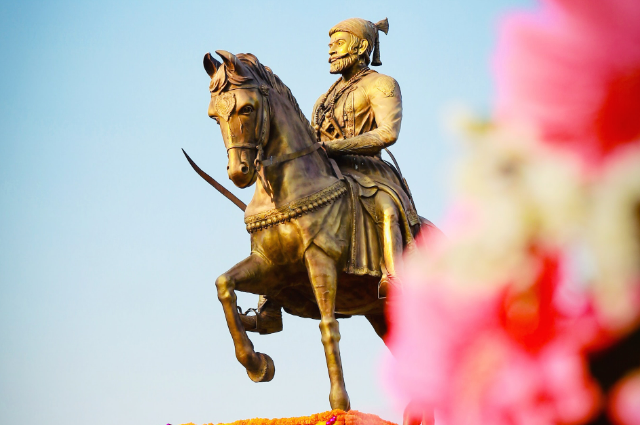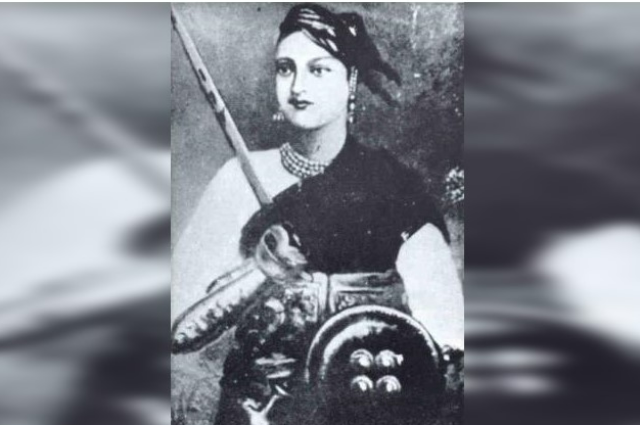It’s been decades since students in India are being taught about the Mughals, The Delhi Sultanate rulers, and the British who invaded India. But is it true to teach students about invaders, or should they be taught about Indian kings who have dominated India’s history?
To understand more about this issue, we need to know who were the invaders and what they did.
Since the 13th century, India was ruled by 5 dynasties with their capital at Delhi, viz, Slave Dynasty, Khilji Dynasty, Tughlaq Dynasty, Sayyid Dynasty, and Lodhi Dynasty, and after that by the Mughals. What did their rulers do to the Indians? They robbed them, tortured them, and killed many innocents. Muhammad of Ghor attacked India and looted the masses. Alauddin Khilji, killed the Rajput ruler, Ratan Singh, and many others by deceit. Ibrahim Lodhi was one of the cruelest kings of Delhi. Mahmud Ghazni, invaded India 17 times, destroying the sacred city of Mathura, attacking the Somnath temple, and looting the richest places in India every year. Bakhtiyar Khilji destroyed Nalanda University, which was the landmark of education in entire Southeast Asia.
Later Babur, over throned Ibrahim Lodhi, but did it do any good to India? Babur destroyed the sacred Ram Mandir and instead built a mosque over there. What did Aurangzeb do? He was the most stone-hearted king in the Mughal empire. He killed many Hindu kings, and destroyed Hindu kingdoms, and sacred Hindu Temples. He also executed King Sambhaji mercilessly, who was also the successor of Shivaji Maharaj.
Now, let’s talk about a few Indian rulers.
Ashoka the Great was one of the earliest rulers in India. He lived for his people, providing them with all necessities and doing justice even with the criminals. One may question his infamous Kalinga War. Nearly 150000 people were indeed killed in the war, but King Ashoka learning from his blunder changed his attitude. He gave up on wars and looked after public welfare. Next, is Rana Pratap of Mewar. He was one of the brave Rajputs who resisted Mughal rule in India and fought Akbar though he knew that Akbar had a vast army. Despite being forced to eat raw grass and bread at a point in his life, did he surrender to Akbar? No, instead he formed an army to fight Akbar, even after having low resources. Prithviraj Chauhan, the brave ruler of Rajasthan, fought against Muhhamad of Ghor at the Battle of Tarain defeating him the first time and blocking him from looting India. Although he was betrayed by Jai This is not beneficial for the future of the country Mal but did Prithviraj Chauhan surrender? No, but he fought the invader with courage.
One cannot forget, The Great Shivaji Maharaj. He had excellent leadership skills; a gifted warrior who fought for his motherland. He was up against Aurangzeb who was a devastating ruler and who had a large army. But did, Shivaji Maharaj retreat? No, he instead fought Aurangzeb, annoying the Mughal ruler as he couldn’t capture the Maratha territories.

Photo by Sudarshan Sahare on Unsplash
The Britishers invaded India in the 17th century, disguised as traders. What was their behaviour towards the Indians? They acted as if they were concerned about India and tried to offer help which many kingdoms accepted, unaware of their real intentions. It was only after the Battle of Plassey(1757), that the real motives of the Britishers came to the forefront. They completely ruined India with their harsh economic and military policies. They drained all the wealth from India to England.
On the other hand, there were brave kings, queens and soldiers who fought for their motherland. It all started with Mangal Pandey revolting against the British and killing some of his officers. Then we have Nana Saheb of Kanpur, Kunwar Singh of Jagdishpur, and many others. Above all, we have Rani Laxmi Bai of Jhansi. She fought bravely against Sir Hugh Rose, although she was later martyred.
Why did these people fight? For attaining wealth? For achieving fame? Or for their motherland? They fought for their motherland!
This is what our culture teaches us; to be loyal to our country and fight to save its honour. Our culture doesn’t impart values of hatred or deceitfulness; our culture doesn’t ask us to invade and ruin other countries; What our culture says is to respect your nation, your motherland, and fight to guard its honour.
Teaching about invaders leads the students to think that what they did was good. Some may also think that the rulers of India were always weak and never gave up a fight. This is not beneficial for the future of the country. Kings like Shivaji Maharaj, Ashoka the Great, Rana Pratap, etc., inspire us to be dedicated to India, while rulers like Rani Laxmi Bai, Nana Saheb, etc., teach us to defend our country. So, by teaching about invaders, aren’t we committing a grave crime against our nation?
Invaders should have no place in our country!
So even after knowing this, why aren’t students in India taught about Indian rulers? Do we want to inculcate values of disloyalty and trickery in our students? Do we want them to have thoughts about revolting against their country?
After reading about these cold-hearted people, who do you think, the students in India should be taught about; About the invaders or about the Indian Kings?
My opinion about the Indian Kings.
People who destroyed India, and ruined its rich cultural heritage do not deserve a place in history. Then why are students being taught about them? Why are the various boards in India, including these invaders in their History syllabuses? I have seen NCERT books and several others, which have separate chapters for each of the Mughal rulers and the Britishers; while there is only 1 chapter for the Indian rulers. 9th and 10th std. books in our country have a lot of details given about each point of the life of the invaders, but nothing about the Indian rulers. Teaching about Indian rulers must be a priority.
We are teaching our future generations how to destroy, loot and ruin a country. Why don’t we teach them about The Indian rulers? There is so much to learn from them. Even Bal Gangadhar Tilak started the Shivaji Festival to teach the masses about loyalty to one’s country, Veer Savarkar wrote books about the rulers who fought in the First War of Independence(1857). Then why on earth do we not inculcate the values of these great rulers in our students?
I want to end by asking a question:
Why isn’t the glorious history of India being taught to the students of today’s time who have all the right to know about their rulers? I leave the answer up to you.

